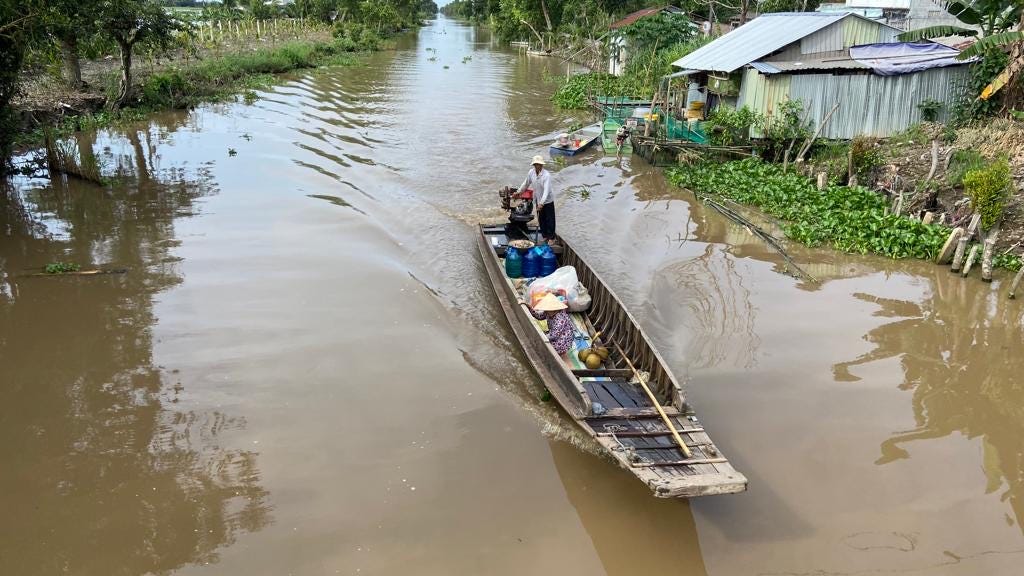Juanillo, mi maestro, me enseñó que si querías que los danios pusieran huevos tenías que hacer que se sintieran como en su casa.
Ellos son originarios del sudeste asiático. Están en los afluentes del Ganges, y los arrozales de esas bonitas tierras.
Y se reproducen en la temporada de lluvia.
Se van a la orilla del río y ahí hacen una danza. Juanillo le llama reguetón, pero creo que el término no me queda demasiado poético para el email tan evocador que me está quedando.
Lo dejaremos en danza.
El caso es que el macho persigue a la hembra en círculos y le hace mimitos con las aletas. Eso hace que la hembra expulse los huevos y luego va el macho y los fecunda con su esperma.
Los huevos caen sobre las piedritas del río. La mayoría es alimento para otros animalejos varios, se contamina o simplemente se muere. Pero aquellos huevecitos que quedan en un recoveco entre las piedras lo suficientemente aislado del mundanal río y todos sus peligros, sobreviven.
Y en tres meses estarán como sus papis, ahí danza que te danza.
Así que como mañana tengo que enviar huevos, hoy me toca reproducir ese romántico ambientacho en mi laboratorio.
Con la ayuda de mi amigo Victor el inventor, hice unas plataformas dignas de los dioses del Ganges, donde mis danios está en la gloria.
Como mañana tengo envíos, hoy toca cruzarlos, así que luego me iré a poner mis plataformas y convertir mis peceras en un romántico lugar.
Si quieres que envíe estos huevos un día a tu cole, echa un vistazo a esta información:
Este trimestre está lleno, pero puedes ir pidiendo presupuesto para el siguiente.
Un abrazo
Txus
Juanillo, my teacher, taught me that if you wanted the danios to lay eggs you had to make them feel at home.
They are originally from Southeast Asia. They are in the tributaries of the Ganges, and the rice fields of those beautiful lands.
And they breed in the rainy season.
They go to the river bank and there they do a dance. Juanillo calls it reguetón, but I don't think the term is too poetic for the evocative email I'm getting.
We will call it dance
The male chases the female in circles and makes her caricies with his flippers. That makes the female expel the eggs and then the male goes and fertilizes them with his sperm.
The eggs fall on the pebbles in the river. Most of them become food for various other animals, get contaminated or simply die. But those eggs that remain in a nook between the stones, sufficiently isolated from the mundane river and all its dangers, survive.
And in three months they will be just like their daddies, there dancing on the river bank.
So since I have to send eggs tomorrow, today I have to reproduce this romantic setting in my laboratory.
With the help of my friend Victor the inventor, I made some platforms worthy of the gods of the Ganges, where my danios is in glory.
As I have shipments tomorrow, it's time to cross them today, so then I'll go put my platforms and turn my fish tanks into a romantic place.
If you want me to send these eggs one day to your school, check out this info:
This quarter is full, but you can go ahead and ask for a quote for next quarter.
A big hug
María



